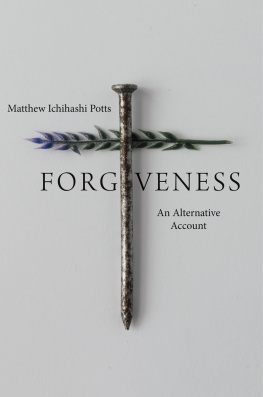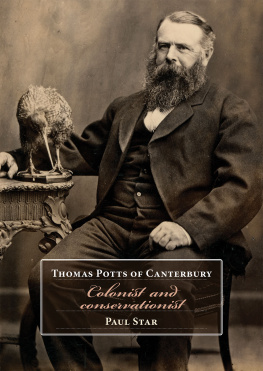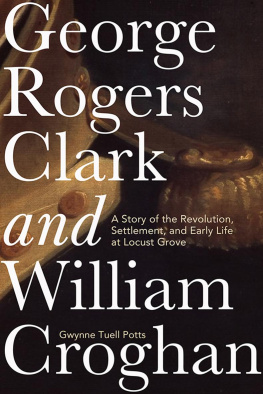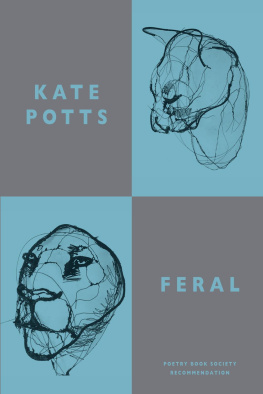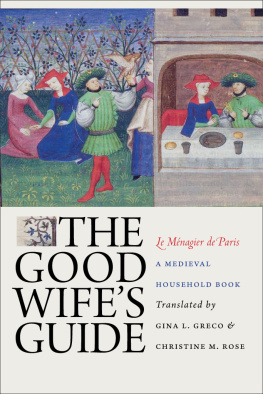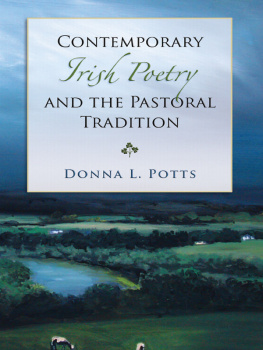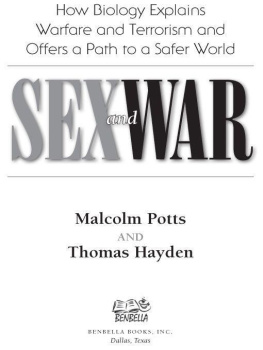First published in 1979 by Garland STPM Press
This edition first published in 2021
by Routledge
2 Park Square, Milton Park, Abingdon, Oxon OX14 4RN
and by Routledge
52 Vanderbilt Avenue, New York, NY 10017
Routledge is an imprint of the Taylor & Francis Group, an informa business
1979 Garland Publishing Inc.
All rights reserved. No part of this book may be reprinted or reproduced or utilised in any form or by any electronic, mechanical, or other means, now known or hereafter invented, including photocopying and recording, or in any information storage or retrieval system, without permission in writing from the publishers.
Trademark notice: Product or corporate names may be trademarks or registered trademarks, and are used only for identification and explanation without intent to infringe.
British Library Cataloguing in Publication Data
A catalogue record for this book is available from the British Library
ISBN: 978-0-367-54033-3 (Set)
ISBN: 978-1-00-312459-7 (Set) (ebk)
ISBN: 978-0-367-64232-7 (Volume 1) (hbk)
ISBN: 978-1-00-312362-0 (Volume 1) (ebk)
Publishers Note
The publisher has gone to great lengths to ensure the quality of this reprint but points out that some imperfections in the original copies may be apparent.
This book is a re-issue originally published in 1979. The language used is a reflection of its era and no offence is meant by the Publishers to any reader by this re-publication.
Disclaimer
The publisher has made every effort to trace copyright holders and would welcome correspondence from those they have been unable to trace.
ACKNOWLEDGMENT
The author wishes to thank the following for permission to quote from the following source: Princeton University Press, Lyman H. Butter-field, ed., The Letters of Benjamin Rush, 2 vols., 1, 1951.
Research funding for this publication was supported in part by NIH Grant LM 02597 from the National Library of Medicine.
Copyright 1979 by Garland Publishing, Inc.
All rights reserved. No part of this work covered by the copyright hereon may be reproduced or used in any form or by any meansgraphic, electronic, or mechanical, including photocopying, recording, taping, or information storage and retrieval systemswithout permission of the publisher.
15 14 13 12 11 10 9 8 7 6 5 4 3 2 1
Blanco, Richard L
Physician of the American Revolution, Jonathan Potts.
Bibliography: p.
Includes index.
1. Potts, Jonathan, 1745-1781. 2. Physicians-PennsylvaniaBiography. 3. United StatesHistory Revolution, 1775-1783Medical and sanitary affairs.
I. Title.
E283.P67 610'.92'4 [B] 79-10268
ISBN 0-8240-7104-2
Published by Garland STPM Press
545 Madison Avenue, New York, New York 10022
Printed in the United States of America
Although the War of American Independence has been studied intensively, relatively little information has been available about the medical problems of the Continental army. Although a few doctors recorded some incidents about the war, apparently no army physician or surgeon of the period left a detailed memoir providing an adequate account of the difficulties confronting medical personnel during the Revolutionary War. I have attempted to synthesize the ac\xADtivities of American doctors in this era by summarizing the career of Dr. Jonathan Potts (1745-1781), a key figure in the army medical department, whose work epitomizes develop\xADments in military medicine.
Potts first served in the army as a regimental surgeon. He later supervised army hospitals at Fort Ticonderoga, marched with Washington at Trenton and Princeton, established sanitary regulations for troops in New York, directed casu\xADalty evacuation during the fighting at Saratoga, and minis\xADtered to the sick at Valley Forge. Potts and his colleagues in the medical department frequently encountered debilitating diseases, such as smallpox, typhus, and dysentery, which took such a heavy toll of soldiers that regiments were often ren\xADdered inactive for months. Few American physicians in the northern campaigns from 1775 to 1780 experienced the prob\xADlems on bloody battlefields and in pestilent-ridden hospital wards encountered by this dedicated and patriotic Quaker doctor from Pennsylvania, whose humanitarian creed was "to tenderly nurse the sick."
Potts, who died at the age of thirty-six, wrote little about himself that can be documented, and his contemporaries gen\xADerally neglected to cite his accomplishments. Because of the scarcity of data about Potts's private life, aspects about his personality remain unresolved. As a result, I am unable to delineate Potts's character with the detail biographers nor\xADmally assess their subjects. However, I have compiled suffi\xADcient material about his background, education, hospital training, civilian medical practice, and about his army ac\xADtivities to place Potts into the historical perspective that he merits.
I have been assisted in my study of Jonathan Potts by several institutions and many individuals. I acknowledge the financial support received in the summer of 1975 from the Research Foundation of the State University of New York which enabled me to initiate the project. A sabbatical leave in the autumn of 1975 from the College at Brockport, State Uni\xADversity of New York, permitted me to continue the work. A research grant for the summer and fall of 1977 from the Na\xADtional Library of Medicine (the National Institutes of Health) allowed me to continue the research further and to begin writing the manuscript. I am deeply indebted to Dr. Albert W. Brown, President of the College at Brockport, State University of New York, for arranging a semester's leave for me in the spring of 1978 so that I could complete the manuscript.
I am particularly grateful to many individuals who en\xADcouraged me in my endeavors. Marjorie Potts Wendell, Potts-town, Pennsylvania, a descendant of Samuel Potts, a brother of Jonathan Potts, gave me invaluable insight into the Potts family and into Pottsgrove Manor. Ray Brown, Program Grants Officer (retired), the National Library of Medicine, suggested to me the need for a study of medical care in the Continental army during the American Revolution, and he encouraged me to submit a grant proposal. Philip Weimer-skirch, Research Librarian, History of Medicine Library, School of Medicine and Dentistry, University of Rochester, Rochester, New York has been a steady source of information and assistance. To Philip Cash, Department of History, Em\xADmanuel College, Boston, Massachusetts, I am indebted for several incisive discussions about medicine in colonial America. Jane Lape, Curator-Librarian, Fort Ticonderoga Museum, Ticonderoga, New York, graciously located innum\xADerable documents for me during my visit to the Fort. Linda Stanley, Archivist, Historical Society of Pennsylvania, lo\xADcated many items for me, even the long-lost Cash Book of Jonathan Potts. For many years, Robert J. Taylor, editor, The Adams Papers, Massachusetts Historical Society, has pro\xADvided me with advice, encouragement, and inspiration. To him, I am especially obligated in many ways.
I also acknowledge the assistance of the following: Ross Beales, Jr., Department of History, College of the Holy Cross, Worcester, Massachusetts; Whitfield Bell, Jr., Executive Officer and Librarian, American Philosophical Society, Philadelphia; Janet Brady Berk, Librarian, History of Medicine Library, School of Medicine and Dentistry, University of Rochester, Rochester, New York; George Chalou, Archivist, Center for the Documentary Study of the American Revolution, National Archives; James Coleman, Superintendent, Morristown National Historical Park, Morristown, New Jersey; Thomas Dunnings, Jr., Assistant Curator of Manuscripts, New-York Historical Society; Charles Finalyson, Keeper of Manuscripts, Edinburgh University Library; J. William Frost, Director, Friends Historical Library, Swarth-more College, Swarthmore, Pennsylvania; Mary Gillett, Historian, Historical Unit, USAMEDD, Fort Detrick, Frederick, Maryland; Mary Belle Green, Supervising Hostess, Hugh Mercer Apothecary Shop, Fredericksburg, Virginia; Lucy Hrivnik, Archivist, Historical Society of Pennsylvania; William Joyce, Curator of Manuscripts, American Antiquarian Society, Worcester, Massachusetts; Susan A. Kopczniski, Park Historian, Morristown National Historical Park; John Kramer, Registrar (retired), Philadelphia College of Pharmacy and Medicine; Charles H. Lesser, Assistant Director for Archives and Publications, South Carolina Department of Archives and History, Columbia; Jean McNeice, First Assistant, Manuscripts and Archives Division, New York Public Library; Frank Mevers, editor, The Papers of Josiah Bartlett, New Hampshire Historical Society, Concord; Caroline Morris, Librarian, Pennsylvania Hospital; Paul Nelson, Department of History, Berea College, Berea, Kentucky; John Parascandola, Director, American Institute of the History of Pharmacy, University of Wisconsin, Madison; Michael Philips, Park Historian, Saratoga National Historical Park, Stillwater, New York; John Reed, Director, Valley Forge Historical Society, Valley Forge, Pennsylvania; Carol Shiels Roark, Research Historian, Historic Yellow Springs, Chester Springs, Pennsylvania; David L. Salay, Curator of Library Resources, New York State Historical Association, Coopers-town; Mrs. Leroy Saunders, Director, Historical Society of Berks County, Reading, Pennsylvania; Richard Showman, editor, The Nathanael Greene Papers, Rhode Island Historical Society, Providence; Don Skemer, Keeper of the Manuscripts, New Jersey Historical Society, Newark; Paul Smith, Historian, American Revolution Bicentennial Office, Library of Congress; Thomas Smith, Librarian, Morristown National Historical Park, Morristown, New Jersey; Richard Sommers, Archivist, United States Military History Institute, Carlisle Barracks, Carlisle, Pennsylvania; Lee Stanton, Research Librarian, New York State Library, Albany; Ricardo Torres-Reyes, National Park Service, Boston; Albert Van Dusen, editor, The Papers of Jonathan Trumbull, Connecticut State Library, Hartford; Louis J. Venuto, Supervisory Historian, Valley Forge National Historical Park; and Gretchen Worden, Assistant to the Curator, Mutter Museum, The College of Physicians of Philadelphia.




